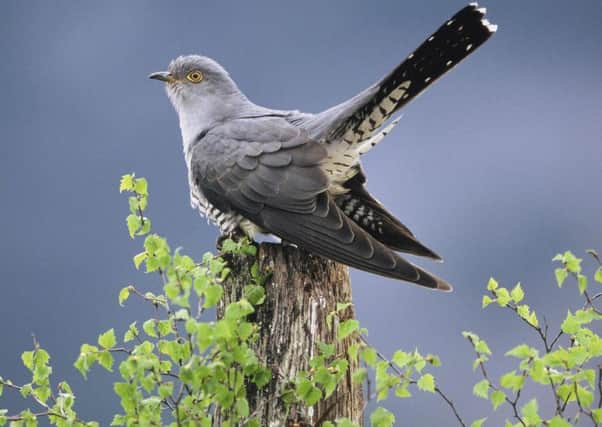What's the name of the game when it comes to birds?


William Shakespeare famously wrote in Romeo and Juliet:
What’s in a name? That which we call a rose,
By any other name would smell as sweet.
The Bard had a point of course, but, by the same token, names are an integral part of our identity. And the same goes for birds, something naturalist and broadcaster Stephen Moss explores in his new book, Mrs Moreau’s Warbler – How Birds Got Their Names.
It hones in on his twin passions of birds and language. “Names are odd because they’ve been around a long time. If you think about the number of people called ‘Smith’, or ‘Taylor’ or ‘Cooper’, a lot of these professions have gone but we’ve kept the names and it’s the same with birds some of the names of which go back hundreds, if not thousands, of years,” he says.
Advertisement
Hide AdAdvertisement
Hide AdMoss’s book takes the reader on a journey back in time and reveals some interesting and sometimes amusing stories.
“One of my favourite stories in the book is that the inventor of the game Subbuteo was a birder and went into the patent office after the war with this new game which he wanted to call ‘hobby.’ But he was told he couldn’t call it that at which point he called it ‘Subbuteo’, because falco subbuteo is the scientific name of the ‘hobby’, a bird of prey,” he says.
“The original impulse for the book goes right back to when I was ten years old and I read about this bird called Mrs Moreau’s Warbler and was thinking ‘what a weird name.’ I didn’t think anything of it for many years until I came to write this book and then I thought it was the kind of title that people might be curious about.”
He points out that while some names have changed over time others haven’t. “I talk about yellowhammer, redstart and wheatear and they’re all names that were once something else and got corrupted in Middle English around Chaucer’s time and those names have then been with us ever since.
Advertisement
Hide AdAdvertisement
Hide Ad“With names like swan and swallow we don’t know what they mean but they go back so far, probably to a language that is no longer spoken. But then other names do change, for instance we called robins ‘red breasts’ right the way up to the 1950s.
“The cuckoo used to be called the ‘gowk’ and in parts of the North-East some people still use the phrase ‘you daft old gowk’ and that’s a name that hasn’t really been used for a thousand years and the time of the Norman Conquests, and yet it carried on in some places.”
Moss points out that many birds names are onomatopoeic. “They’re often linked to their sound, the cuckoo being the obvious one. So you could change their names but they would lose a lot of their resonance and that’s not true of most animals.”
Many birds are under threat today due to a combination of factors including loss of habitat and climate change. “One of the reasons I wanted to call it Mrs Moreau’s Warbler is because at the end of the book I wanted to say ‘aren’t birds amazing,’ and isn’t it sad that the dodo is only known as being ‘dead as a dodo.’ It’s like a byword for extinction,” he says.
Advertisement
Hide AdAdvertisement
Hide AdMoss believes our deep-seated affection for birds is quite straightforward. “They fly and they’re everywhere. I’ve never been anywhere in the world where I haven’t seen a bird, whereas you can go somewhere and spend ages and not see any mammals.”
And you hear them, too. “There’s the dawn chorus and the whole notion of birdsong which brings us back to bird names. When I hear my first cuckoo which would probably be around now if I was able to get outside, that’s a very special moment.”
Mrs Moreau’s Warbler – How Birds Got Their Names, published by Guardian Faber, is out on May 3 priced £16.99.